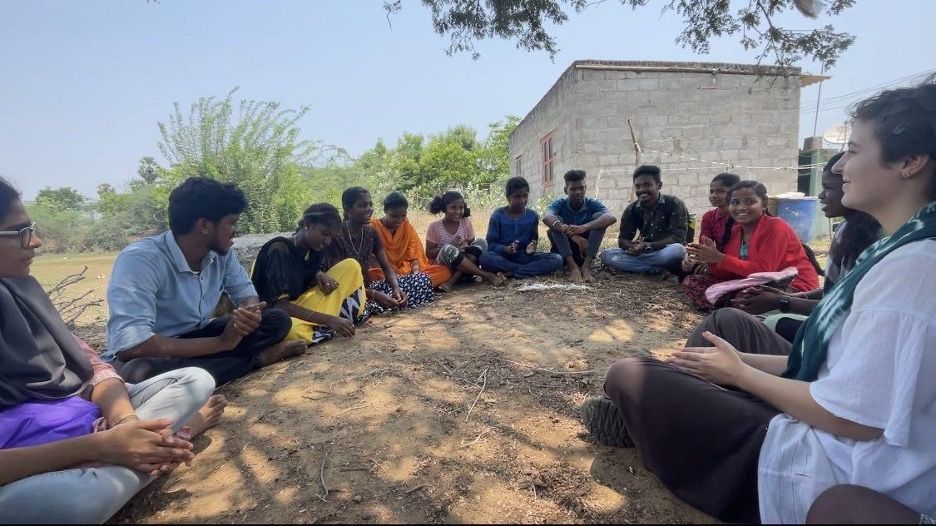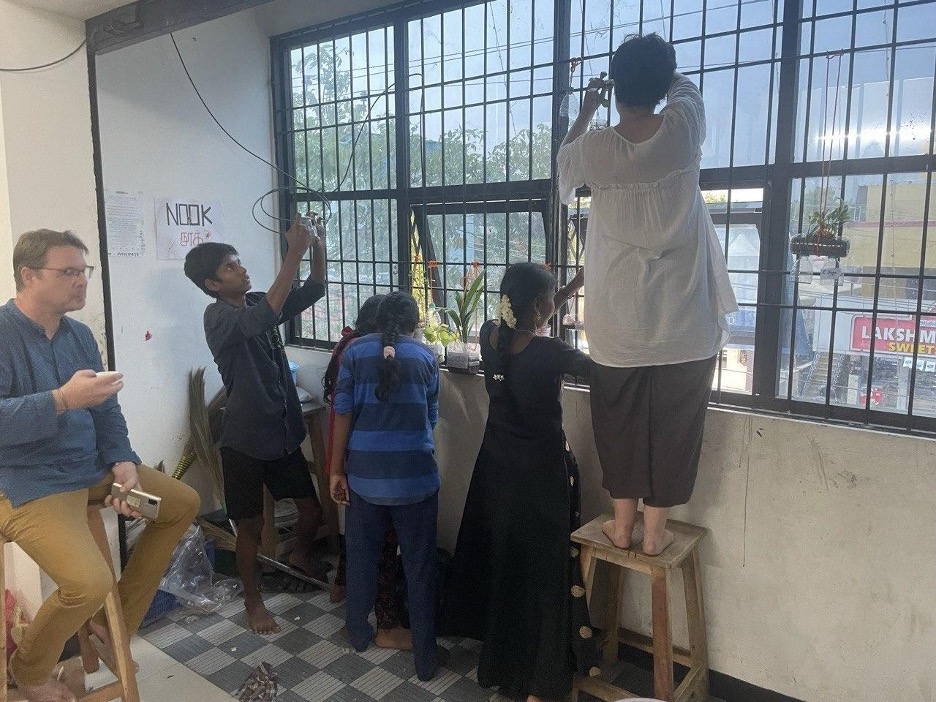Latest Blog
I have been at IIT Madras for nearly two years. Recently, I had the opportunity to visit Katchipattu, a periurban area approximately 45 km away from IITM. This was my first visit, and I was fortunate to participate in a workshop organized as part of the Nook project at IGCS. The Nook is a learning space located in the village of Katchipattu in Sriperumbudur, Tamil Nadu. It started operating in April 2022. This space is a place where people can learn on their own and connect with their community. Young children ranging in age from 12 to 20 completely filled the space, and the fact that the majority of them were girls was crucial.

Highlights
Workshop at Katchipattu
IGCS Workshop
The workshop was designed to encourage the active participation of children, aiming to empower them with knowledge and skills to tackle environmental challenges
Participant Motivation and Engagement

Temple Pond visit
Understanding various challenges
We discussed pollution and its impact on aquatic life and the communities settled around that pond, emphasising the need to protect it.

Plastic Bottles to Plant Pots

Children's Concerns about Plastic Wastes

Workshop at Katchipattu
My first trip to Katchipattu coincided with a workshop that Sofia, an intern and recent environmental psychology graduate from Germany, was leading. The workshop aimed to help the children of Katchipattu explore their environment and raise awareness about waste management, pond cleaning, and plastic recycling. Here are some activities I observed that highlight the motivation and skills exhibited by the children.
The IGCS workshop took place in Katchipattu to foster environmental awareness and address waste-related concerns. The workshop was designed to encourage the active participation of children, aiming to empower them with knowledge and skills to tackle environmental challenges
The workshop's main goal was to show how to maximize productivity in a small area. The facilitators illustrated planting patterns and gave precise directions on preparing the land, including the natural manure and insecticides. The one-cent land system and solar garden system concepts were also presented, allowing participants to experiment with cutting-edge gardening methods.
Participant Motivation and Engagement
The children of Katchipattu were exceptional during the workshop. They eagerly participated in various activities, like segregating plastic waste, recycling plastic bottles into pots, planting flowers, visiting the village pond, and showing interest in understanding their environment and addressing waste management issues. Their active engagement created a positive and lively learning environment.
Temple Pond visit
Sofia led these children to the pond area, where they could observe the pond's ecosystem, understand its importance, and identify the various environmental challenges. We discussed pollution and its impact on aquatic life and the communities settled around that pond, emphasising the need to protect it. It was a fun exercise; the children sang a Tamil song and suggested to Sofia what they could do to restore the pond. This first-hand experience helped the children better understand how the ecosystem of the community works.
Plastic Bottles to Plant Pots
One more exciting activity involved the transformation of collected plastic bottles into practical and attractive plant pots. Under Sofia's guidance, the children learned how to recycle waste materials. This activity introduced them to repurposing and upcycling concepts while emphasising the importance of waste reduction and reuse of plastic creatively. Seeing the joy on their faces as they created their plant pots and wrote their names was genuinely heartwarming.
Children's Concerns about Plastic Waste
Throughout the workshop, the children expressed their concerns about waste management in their community and the pond area. They shared personal experiences and observations about improper waste disposal, littering, and the problems that it causes. This open dialogue allowed the children to discuss their worries and possible solutions. The workshop empowered them to take responsibility for waste management, inspiring them to positively impact their community.